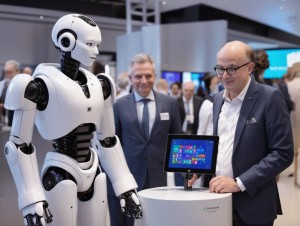Mayo Clinic researchers have unveiled a novel class of artificial intelligence (AI) algorithms, tagged as hypothesis-driven AI. This new strategy stands apart from the usual AI methods by weaving in scientific theories into the data learning process. This technique could change how we understand and treat complex diseases, like cancer.
The shift to hypothesis-driven AI
Traditionally, AI learns from vast amounts of data, without much regard for pre-existing scientific knowledge. This method has been useful for tasks like facial recognition or analyzing medical images. However, it falls short in fields requiring deep insights, such as medicine. Here, understanding the ‘why’ and ‘how’ behind diseases is crucial. This is where hypothesis-driven AI comes into play.
This new class of AI algorithms merges huge datasets with scientific theories to dig deeper into diseases’ roots. Senior author Hu Li, Ph.D., a systems biology and AI researcher at Mayo Clinic, believes this marks the dawn of an era. By directing AI with specific scientific questions, researchers can unlock insights that were previously out of reach. This doesn’t just mean better understanding diseases; it means improving how we treat them, making medicine more personalized and effective.
The future of research
The potential applications of hypothesis-driven AI in cancer research are vast. From classifying tumors to predicting how a patient might respond to a certain therapy, this AI could transform the field. It’s not just about having more data but using it smarter, with a clear focus on open scientific questions.
But, creating these AI models isn’t easy. It demands a mix of expertise and specialized knowledge, which could limit how widely they’re used. There’s also the risk of bias – when AI leans too heavily on certain pieces of information, it could skew results. Despite these hurdles, the integration of human expertise with AI offers a bright spot. It suggests a future where AI supports, rather than replaces, professional roles.
In sum, hypothesis-driven AI represents a significant leap towards more insightful, efficient, and personalized medicine. While obstacles lie ahead, the potential benefits for cancer research and treatment could be transformative.





